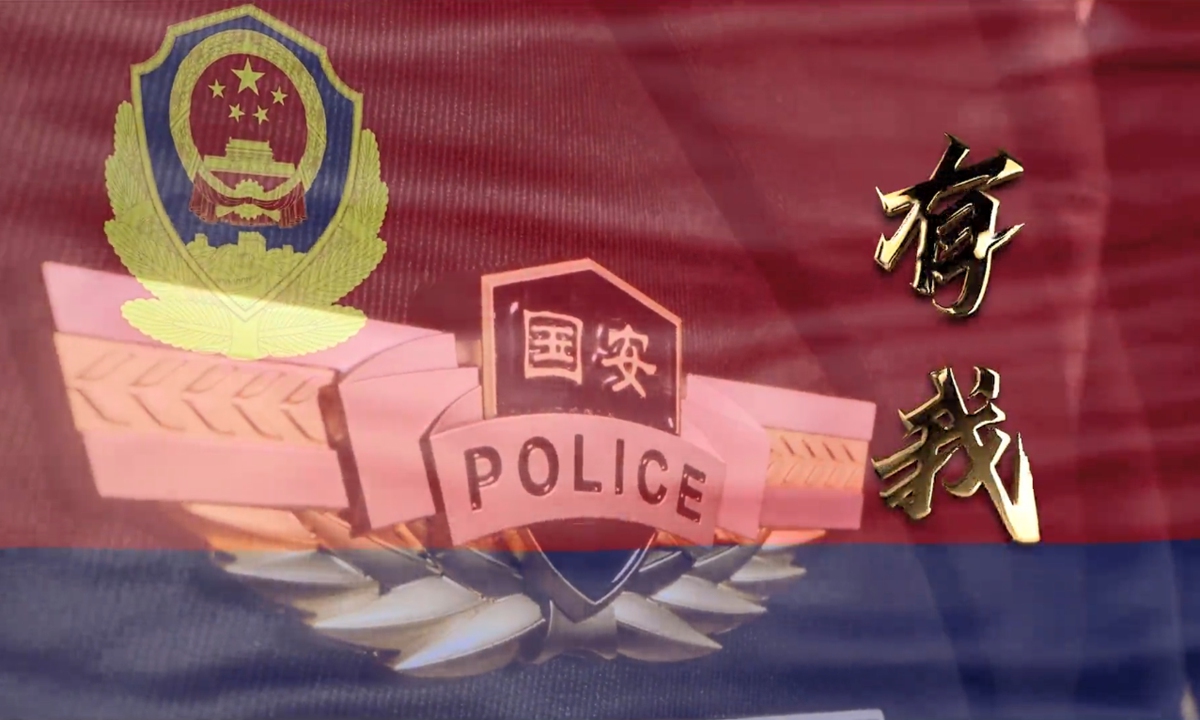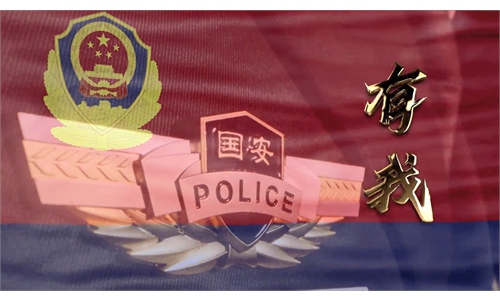China's security authorities disclose details of a US meritorious medal-awarded spy
Leung sentenced to life in prison, ending over 30 years of espionage activities

Chinese Ministry of State Security
China's national security authorities on Monday released details about the case of John Shing-wan Leung, a permanent resident of China's Hong Kong Special Administrative Region (HKSAR) and a US passport holder. Leung was sentenced to life in prison on espionage charges, including serving as an informant of a US intelligence agency and conducting spy activities for the US under the disguise of charity.
Leung was handed down the life sentence in May, marking an end to his "spy career" for the US that spanned more than 30 years, China's Ministry of State Security (MSS) said in a release on its official WeChat account on Monday.
Leung, who was born on May 1, 1945 in Hong Kong, was deprived of his political rights for life and will also have 500,000 yuan ($71,800) of personal assets confiscated, according to the court verdict.
The Ministry of State Security's statement said that Leung went to the US to run a restaurant in 1983. In 1986, agents from US intelligence agencies repeatedly contacted Leung, identified themselves explicitly and requested Leung's cooperation. In 1989, US intelligence agencies officially signed a "cooperation agreement" with Leung, recruiting him as an informant. They agreed on a secret means of communication and promised to pay him $1,000 per month, with additional bonuses based on his performance. That same year, Leung obtained the US citizenship.
In order to shape Leung's social image, the US side went to great lengths to create a "persona" for him ̶ they fabricated his background, claiming that he had studied at a university in the UK, worked as a United Nations official, and served in the Vietnam War. They also required him to donate money to US state legislators in order to burnish his image.
Moreover, to enhance Leung's influence among overseas Chinese communities, the US side also provided funding and instructed him to assume positions such as president, honorary president, and chairman of various Chinese community organizations through donations and other means. To increase Leung's visibility in China, a US spy agency instructed him to carry out charitable donations and tried to create a false image of him as a "patriotic philanthropist."
Under this pretense, Leung conducted extensive espionage activities. For example, by organizing overseas Chinese community activities, Leung approached Chinese diplomatic institutions and personnel in the US, monitored Chinese nationals and overseas Chinese in the US, and reported to US intelligence agencies through designated phones and emails, according to the MSS release.
Per the MSS release, whenever Leung learned about Chinese personnel traveling to the US for official businesses, he would report to US spy agencies and follow instructions to take them to restaurants or hotels pre-installed with surveillance devices to obtain intelligence. He even set up sexual entrapments in an attempt to coerce and incite defection of Chinese personnel.
Leung was also found cooperating with the US' efforts to carry out sting operations. The US side instructed Leung to meet with targeted individuals at designated locations, enticing them to engage in sensitive transactions and gathering "evidence" to fabricate so-called Chinese spy cases.
Under the command of several US spies, Leung collected a large amount of intelligence related to China. He was even awarded a meritorious medal by a US intelligence agency.
In 2020, when international flights were suspended due to the outbreak of the COVID-19 pandemic, US intelligence agencies, eager to obtain Chinese intelligence, instructed the 75-year-old Leung to enter the Chinese mainland. At the end of 2020, Leung used multiple identity documents to transit through the HKSAR and arrived in the Chinese mainland. He then frequently participated in various social activities, extensively contacting individuals from all walks of life in China, while seeking to gather intelligence.
State security authorities in Suzhou, East China's Jiangsu Province, took compulsory measures against Leung in April 2021 on suspicion of espionage.
The Chinese national security authority noted in the release on Monday that according to China's Criminal Law, individuals who organize or participate in espionage activities and endanger national security can be sentenced to between 10 years to life in prison. Additionally, according to China's Counter-Espionage Law, individuals who are coerced to participate in spy activities overseas may not be held accountable if they report themselves to Chinese security authorities.
The case has once again proven that the Central Intelligence Agency (CIA) of the US is a significant threat to China's national security, and all individuals implanted by or serving the CIA are ultimately left with a miserable fate, evident in Leung's case, Li Haidong, a professor at the China Foreign Affairs University, told the Global Times on Monday.
"Leung's destiny will serve as a chance for self-reflection among those engaged in this type of deed, prompting them to surrender in a timely manner, or else they will face severe punishment," Li noted.




